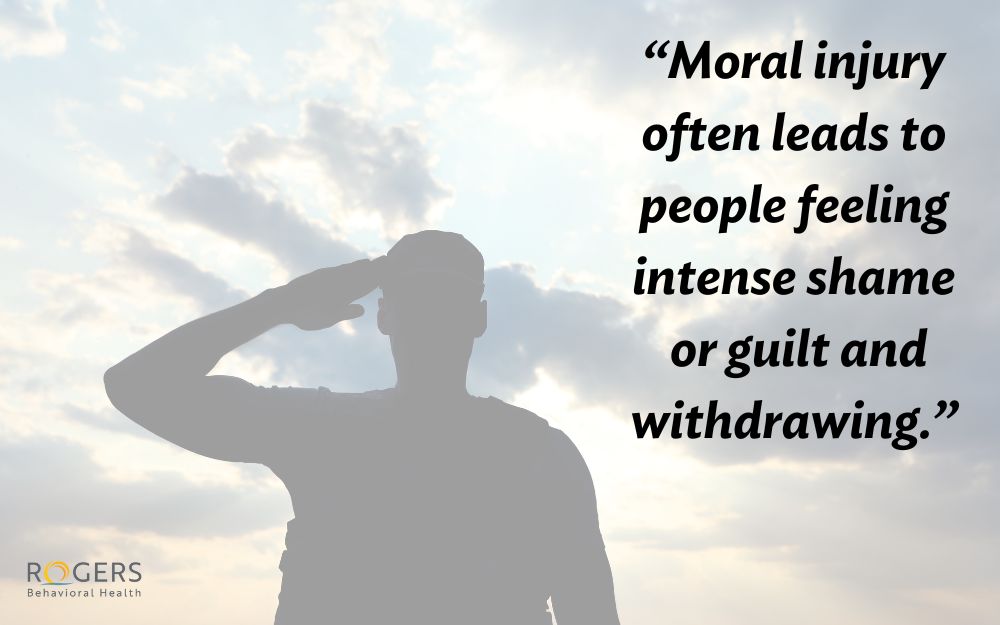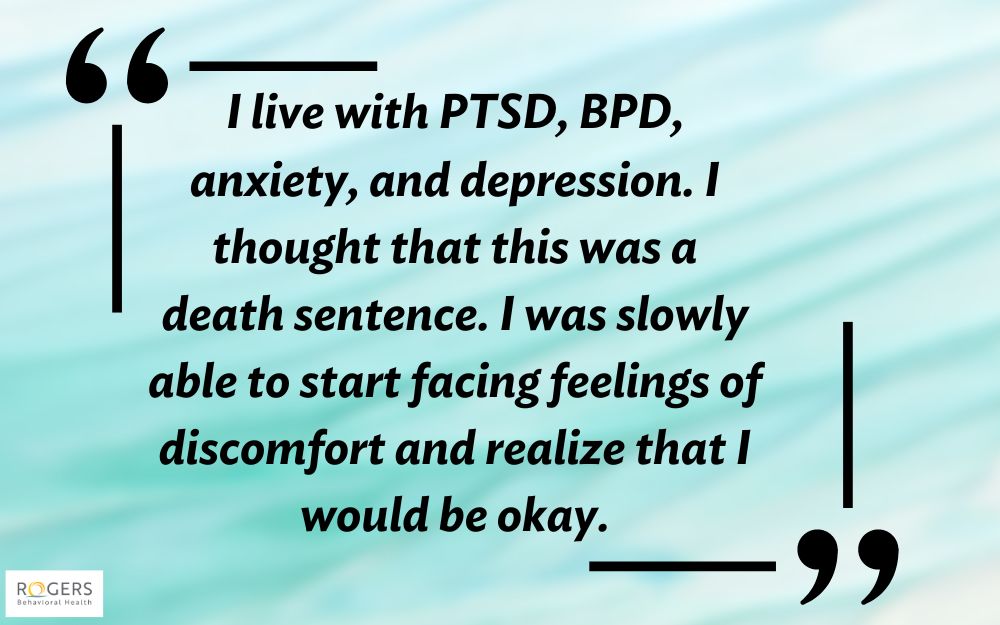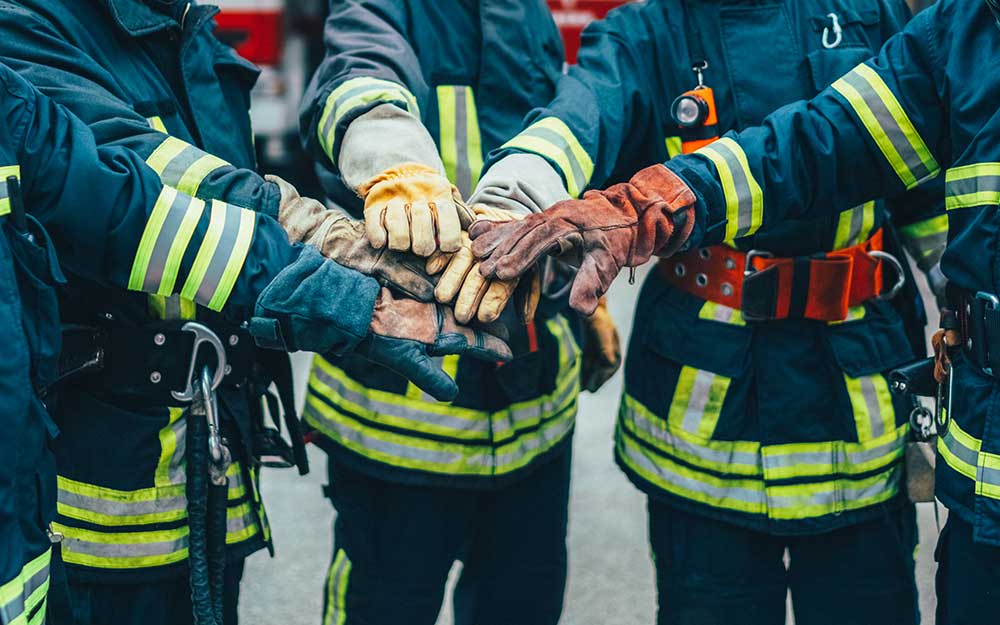
Trauma Recovery (PTSD)
The effects of trauma and untreated PTSD cause those affected to relive events, avoid them entirely, or experience heightened emotions—all of which prevent carrying on with day-to-day life in a safe and fulfilling way. We understand how damaging trauma can be to someone's well-being and we have the experience and proven-effective treatment to help.
If you are concerned you or a loved one may be suffering from the effects of trauma or PTSD, you can take a short, confidential quiz to check your symptoms.
Comprehensive scope of care
Led by board-certified psychiatrists, our multidisciplinary team at Rogers offers specialized, intensive, evidence-based trauma recovery care. At Rogers, patients learn to develop successful coping strategies to address their trauma and reclaim life.
Triggers addressed through our Trauma Recovery Care:
- Sexual and physical assaults during childhood or adulthood
- Natural disasters
- Terrorist attacks
- Military combat
- Life-threatening illness, injury, or accidents
- Secondary trauma (such as first-responder witness of the aftermath of abuse, accidents, death)
For more than 20 years, Rogers has been measuring the effectiveness of our care in the most transparent, scientifically reliable way possible. Each year, Rogers conducts nearly a million patient assessments: taken at the start of treatment, at various points throughout treatment, at discharge, and 12 months after care.
Levels of care
At Rogers, you have a continuum of care.
- PTSD inpatient care to help patients (children and adults) with acute needs for medical stabilization. We offer inpatient care at three hospital locations in southeastern Wisconsin: Brown Deer, Oconomowoc, and West Allis.
- Residential trauma treatment, To provide adults suffering with intense effects of trauma and PTSD, Rogers is proud to offer residential care for Trauma Recovery in Oconomowoc. In this supportive, home-like setting, patients work with treatment teams to develop skills needed to face challenges and find the resilience to achieve and maintain recovery. A typical length of stay in residential care is 30 to 90 days.
- Partial Hospitalization Outpatient Care (PHP), for adults and adolescents 6 hours a day, 5 days a week. Intensive, structured treatment that provides more hours of therapy in a week and allows patients to remain connected with their social support network. Patients, families, and treatment teams work together to determine length of programs based on individual progress and situations.
Not sure what treatment or care option is right for you? Don't worry, we are here to help guide you in what option fits you best during your free screening. Call 800-767-4411 or click the button below to request a screening.
Evidence-based treatment for PTSD
At Rogers, we use therapeutic methods that research shows to be the most effective for reducing symptoms. Depending on the level of care and diagnosis, patients may engage in:
- Cognitive behavioral therapy (CBT)
- Trauma-focused cognitive behavioral therapy (TF-CBT) teaches adolescents skills to cope with distressing thoughts and feelings and emphasizes making the parent or guardian an active component of treatment.
- Prolonged exposure therapy for PTSD (PE)
- Behavioral activation (BA)
- Art and yoga/movement therapy
- Family involvement is a key part of recovery that allows for more effective treatment and eases the transition after treatment. This includes psychoeducation for family members about their loved one’s symptoms and treatment strategies being used.
Our treatment team also incorporates efforts to translate skills learned as part of therapy into social, personal, and professional scenarios through therapist-supported community exposure as you are ready. Patients can also choose exposures to be completed on their own.
Over time, the techniques and therapies used within our therapeutic approach will help you identify your personal values, gain acceptance of your thoughts and feelings, and help you begin living the life you want.
Insurance pricing calculator
Access resources to help you make an informed decision.
Successful Clinical Outcomes
Data collected before and after treatment shows Rogers' treatment works. View more successful outcomes.
PTSD Symptom Checklist
Rising Above Trauma: Barb's Story
Growing up, Barb did well in school and was the first person in her family to go to college. After having a career as a newspaper reporter, she went ... Read More
We want to help.
Contact us to request a free confidential screening and learn more. Call 800-767-4411.
Quick facts
Learn more about trauma and PTSD symptoms, causes, and treatment options.






